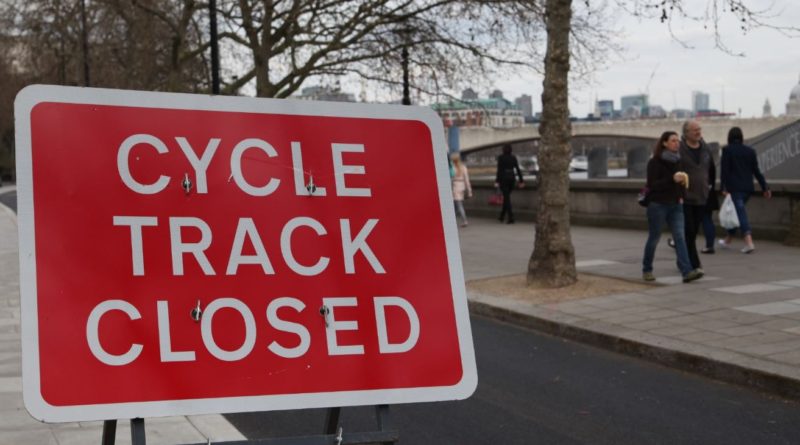Segregated cycle lane construction likely to slow, says Transport Committee document
A new London Assembly Transport Committee document has hinted that the brakes may be about to be applied on progress to develop London’s safe cycling offering.
Where implemented, segregated cycle lanes have proved popular, in many cases outstripping motorised travel in both volume and speed through the city. However, the Transport Committee document titled London’s Stalling pulls up such projects – of which there are still relatively few in the city – suggesting that the speed at which segregated infrastructure has appeared has and is likely to continue to negatively affect traffic.
Alan Bristow, Director Road Space Management at Transport for London, is quoted within as saying of the Superhighways programme: “We are currently looking at extensions to the North-South Cycle Superhighway into the City and also the Cycle Superhighway 11 programme is under debate for tying down in the future. The Cycle Superhighway programme will go ahead because cycling safety demands that we keep this process going, but probably the issue was the sheer scale and speed at which the current batch of Cycle Superhighways were put out there, which we intend to learn the lessons from.”
Though largely focused on Congestion Charging in the city, segments of the report focus heavily on cycling’s contribution to the roads, which is generally noted as a positive one, as well as how best to encourage modal share switches.
Chair of the Transport Committee Caroline Pidgeon leads the paper and despite acknowledging the success to date of reducing private motor traffic, describes the current congestion charge as “not fit for purpose” as the city once again slows.
Though the document suggests throughout that congestion around both construction sites of Cycle Superhighways and existing paths has increased, no data is supplied to back the claim.
A 32.8% spike in use of the capital’s cycle hire coincided with the launch of some of London’s first segregated cycle paths, with hire rates steadily increasing since.
Buried at the base of the document is a further objection from David Kurten AM, UKIP’s Group Lead on the Transport Committee, which reads:
We support sensible measures to improve cycle safety which do not increase congestion such as Quietways where they are supported by local communities.
Cycle Superhighways, while well intended, have led to increased congestion in central London. London does not have wide and spacious boulevards like Berlin or Perth and it is not possible to convert the small amount of vehicle space that it already has into dedicated cycle lanes in an era of rapid immigration and population growth without increasing road congestion. The implementation of new Cycle Superhighways will further increase congestion and this policy needs to be rethought.
To read the London Stalling document in full, click here.
Sadiq Khan was also this week pressed on his Cycling and Walking Commissioner appointment Will Norman, as well as plans for infrastructure. Khan’s indication, as seen in the below video, was that Quietways may become preferential.



